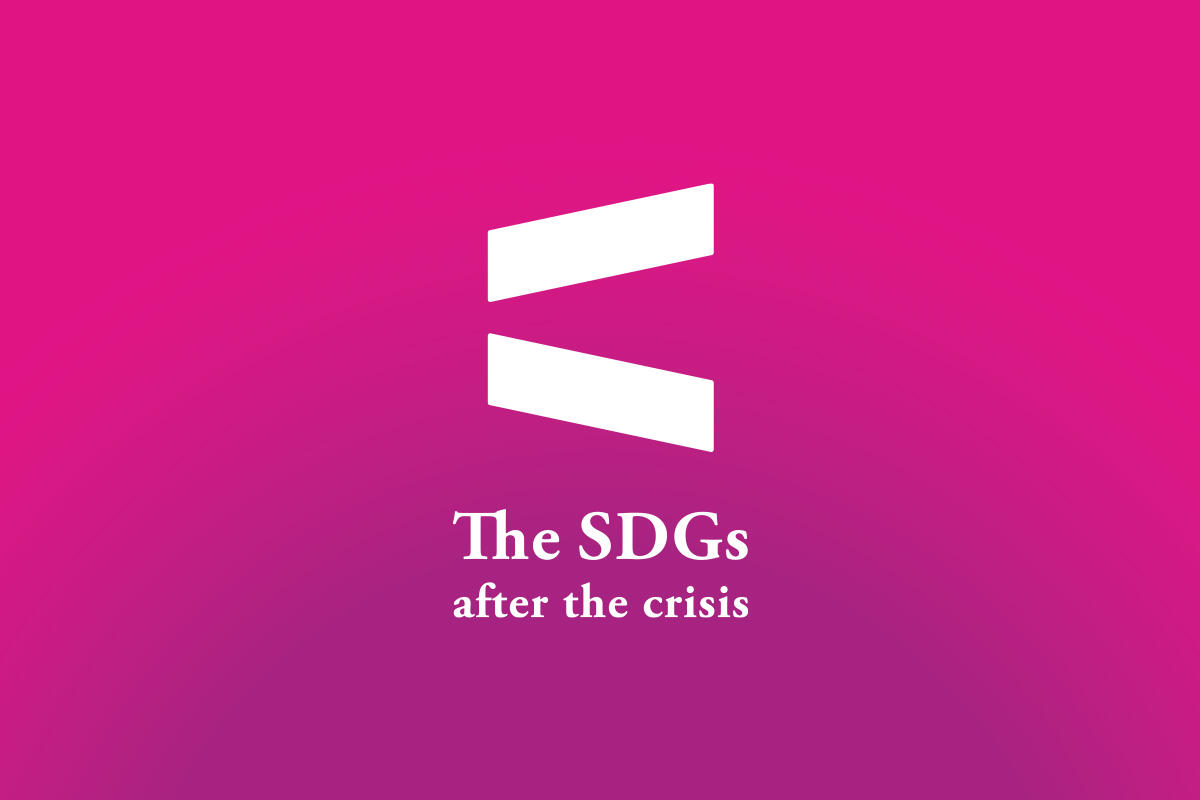SDG Conference Bergen becomes global success
A global audience of more than 2,600 watched as Norway’s Foreign Minister Ine Eriksen Søreide opened the 2021 SDG Conference Bergen discussing issues of climate change, stable institutions and inequality as the conference went virtual – and viral.

Main content
With more than 2,600 participants from 105 countries the fourth SDG Conference Bergen became a global success story. Previously, the conference has mainly gathered a local audience from Norway’s university sector mingling with politicians, diplomats, state and county officials, industry, trade unions, civil society and other SDG enthusiasts.
Norway’s Minister of Foreign Affairs Ms. Ine Eriksen Søreide gave the opening speech and stressed the role of academia for the 2030 Agenda.
“With fewer than 10 years left before we reach 2030, the world needs urgent collective action to achieve the Sustainable Development Goals (SDGs),“ said Eriksen Søreide, “the contributions of the academic world will be essential if we are to succeed.”
The perils of post-pandemic inequality
She then went straight to the heart of the conference theme The SDGs after the crisis and the rising inequality post the pandemic.
“The major challenge of the health crisis and the human rights crisis in its wake, is how this affects men and women differently and countries differently. The challenges have piled up,” said the Foreign Minister on life after the pandemic.
“The most vulnerable have been hit the hardest. We see the impacts have been exacerbated for women and girls. This threatens everything that has happened in sustainable development in the last five years. However, contrary to the last global crisis the SDGs offer a blueprint for what needs to be done. The imperative to build back better also means that we must build back more sustainably,” she said.
Praise for ocean science contribution
The Foreign Minister highlighted Norway’s key role for a sustainable ocean, pointing to Prime Minister Erna Solberg’s High-level Panel for a Sustainable Ocean Economy, which presented its final report in December 2020. She then praised the University of Bergen for its work as the United Nations Academic Impact (UNAI) Hub for SDG14, Life below water.
“The link between sustainable oceans and reaching the Sustainable Development Goals is obvious. Let me take this opportunity to thank the University of Bergen for taking on a leadership role to advance SDG 14, including as official UN Ocean Science Hub,” said Ine Eriksen Søreide.
Celebrating youth
To open the final day of the 2021 SDG Conference Bergen, the organisers had invited the UN Secretary-General’s Envoy of Youth, Ms.
“The SDGs are essential to unlock the potential of the world’s youth,” said the UN Youth Envoy. “We need to make sure young people are able to contribute. Intergenerational solidarity and collaboration are key for an inclusive future.”
“What does peace mean to you?” is a question the UN Youth Envoy asks youth around the world. She said that the answers are so much more than “the absence of peace”, but instead speak of freedom of speech and political engagement. Student Hibaq Abdi Mohamed from the University of Bergen’s Faculty of Law interviewed the Youth Envoy for the session.
Keynotes taking on inequality
The three keynote speakers at the conference, took on the conference theme of rising post-pandemic inequality from different perspectives. First of these was Professor Kate Raworth from the University of Oxford, presenting her ground-breaking Doughnut Economics theory.
“All of these crises emerge from the systems we’ve created, that believe that progress comes from growth. We need to move beyond that. For that, I offer a doughnut,” said Raworth: “Leave nobody in the hole!"
“No country is developed. I’ve certainly never been to one! In the context of Doughnut Economics, we are all still developing,” she said.
“COVID19 is like an X-ray, exposing fractures,” said President Daya Reddy of the International Science Council (ISC), who focussed on science literacy in his speech, using genome editing CRISPR as an important issue for a science literate society. “What do we understand by science literacy?”
“COVID-19 is a time to rethink the SDGs,“ said Director Edgar Pieterse of the African Centre for Cities at the University of Cape Town. He highlighted the UN’s New Urban Agenda, the IPCC’s 1.5 degree report, and UNEP’s the Weight of Cities in his keynote:
“The foundation of all SDGs are the four political empowerment goals: SDG1 No poverty, SDG5 Gender equality, SDG10 Reduced inequalities, and SDG16 Peace, justice and strong institutions.”
All keynotes were followed by select discussants leading to lively debates, interacting with the ongoing chat on the conference platform, and with moderator Sofie Høgestøl from the University of Oslo picking questions directed at the keynotes and discussants.
#SDGbergen21
With record attendance for this truly global conference, the chatter in social media reached unprecedented highs, with millions of tweets accumulated across the planet helped by the more than 2,600 participants from 105 countries at the conference. SDG Bergen’s Twitter and across the rest of the University of Bergen’s accounts alone more than 250,000 impressions were recorded during the three conference days, with more in the lead up and the days following the conference.
On Day Zero and Day 1 of the conference, the hashtag #SDGbergen21 became ubiquitous and was trending as number one nationally in Norway and also registering in a few other countries. This is the fourth year running that the SDG Conference Bergen finds itself trending on top in Norway.
Welcome back in 2022
The programme committee was headed by Professor Bjørn Enge Bertelsen, who is also the scientific director of GRIP. He closed the conference with University of Bergen Vice-Rector Annelin Eriksen, who is also the leader of the Norwegian university sector’s national committee for the 2030 Agenda.
The two announced the dates for the fifth annual SDG Conference Bergen, taking place 9-11 February 2022. Wishing everybody a warm welcome back for #SDGbergen22!

